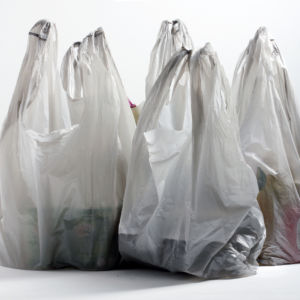A state senator in New Jersey has proposed an ambitious bill that would ban plastic and paper single-use bags across the state. The bill is a result of Gov. Phil Murphy, a Democrat, demanding more stringent bag regulations after he vetoed a previous proposal that would have established a statewide plastic bag ban and levy a nominal fee of 5 cents on paper bags in 2018.
“As a society, we must break our dependence on single-use bags when going about our daily routines and instead commit ourselves to sustainable alternatives,” Murphy said in a veto statement last year. “In order to make a real difference, a single-use bag program must be devised and applied more broadly and consistently in a manner that would avoid loopholes that undermine the ultimate purpose of the program,” he added.
Sen. Bob Smith (D-Middlesex) and other lawmakers heeded the calls of the governor and introduced an amendment to the currently proposed S. 2776 as a remedy this legislative session. Under the original text of the bill, retail food establishments and other similar retail operations would be prohibited from using plastic bags across the state. Smith’s bill will also ban plastic straws. If this bill becomes law, violators will be fined $500 to $5,000 depending on the number of offenses committed by a retailer.
Additionally, Smith wants to ban single-use paper bags. He justified his decision after a visit to Aruba, according to local reports. Aruba has a national single-use plastics ban that covers bags, plastic cups, and straws and levies a 28-cent fee for paper bags
“Nobody’s grumbling,” Smith told NJ.com, noting that the island nation’s citizens bring their own bags a local retail establishment. “Everybody in the line, they all do it,” Smith said. His proposal goes even farther: “No bags whatsoever … No single-use plastic, no paper.”
Smith’s bill has already passed initial committee hearings and, once amended, will likely advance to a second reading in the coming weeks. Industry organizations and some economists are not happy.
Kerry Jackson, a fellow at the Pacific Research Institute’s Center for California Reform, told Inside Sources that plastic bans do not work, no matter where such proposals are introduced.
“There’s clearly little or no concern in the Capitol for the inconveniences and costs consumers will have to deal with,” he said. “Neither is there concern that interfering in private transactions between merchants and customers is a gross violation of government’s legitimate limits. The authoritarian urges that drive nanny state lawmaking are alarming to some of us.”
American Progressive Bag Alliance executive director Matt Seaholm tells InsideSources he believes that the plan isn’t based on data. “The driver of it is emotion and feel-good policies,” Seaholm said.
Seaholm referred to a report conducted by independent auditors measuring statewide litter in New Jersey. The report’s authors concluded that plastic bags like the ones S. 2776 would prohibit are just 0.8 percent of all litter in the state. Other assessments on bag bans conducted by research groups and journalists found that reusable tote bags have larger environmental footprints than plastic and paper bags. A study conducted by government researchers for the United Kingdom’s Environment Agency found that plastic bags are less damaging to the environment when considering the broader impact of manufacturing single-use and reusable supermarket bags.
Research also indicates that plastic single-use bags are more environmentally friendly than paper bags. While paper bags are biodegradable and derived from a renewable resource, the process of making and shipping paper bags gives them a larger carbon footprint than single-use plastics.

